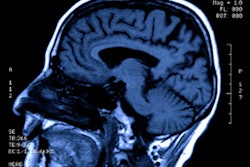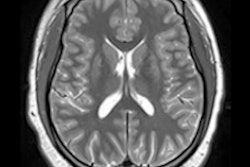
Loneliness increases dementia risk threefold among older adults not considered high risk and is related to brain changes visible on MRI scans that indicate vulnerability to Alzheimer's disease, according to a study published February 7 in Neurology.
The findings highlight the impact loneliness can have on the health of older adults, according to a team led by Dr. Joel Salinas of NYU Grossman School of Medicine in New York City.
"Acknowledging signs of loneliness in yourself and others, building and maintaining supportive relationships, providing much-needed support for the people in our lives who are feeling lonely -- these are important for everyone," Salinas said in a statement released by the journal. "But they're especially important as we age to increase the chances that we'll delay or perhaps even prevent cognitive decline."
Salinas and colleagues sought to explore whether loneliness increases dementia risk via research that included data from 2,308 participants in the Framingham study (conducted between 1948 to 2018) who were free of dementia at the beginning of a decade of being tracked. The average age of the participants included in the study Salinas and colleagues performed was 73; all were evaluated with MRI brain scans, interviewed for frequency of loneliness or depression symptoms using the Center for Epidemiologic Studies Depression Scale, and assessed for the Alzheimer's disease genetic risk factor apolipoprotein E (APOE) ε4 allele.
Of the 2,308 study participants, 329 (14%) were diagnosed with dementia at the end of a 10-year time period; of this total cohort, 144 (6%) reported feeling lonely three or more days in the previous week.
Of the 144 individuals who reported feeling lonely more than three days in a week, the group found the following:
- 31 developed dementia.
- Those between the ages of 60 and 79 were twice as likely to develop dementia.
- Loneliness was linked with a threefold increased risk of dementia among people between the ages of 60 and 79 who did not carry the APOE ε4 allele gene and thus were not considered to be at higher risk.
- Loneliness was also connected to poorer executive function, lower total cerebral volume, and greater white-matter injury -- all risk factors for dementia.
"Over 10 years of close clinical dementia surveillance in this cohort study, loneliness was associated with increased dementia risk; this tripled in adults whose baseline risk would otherwise be relatively low based on age and genetic risk, representing a majority of the U.S. population," the authors wrote.
The results could have "important clinical and public health implications," according to Salinas and colleagues.
"This study is a reminder that, if we want to prioritize brain health, we can't ignore the role of psychosocial factors like loneliness and the social environments we live in day-to-day," he said in the journal statement.





















